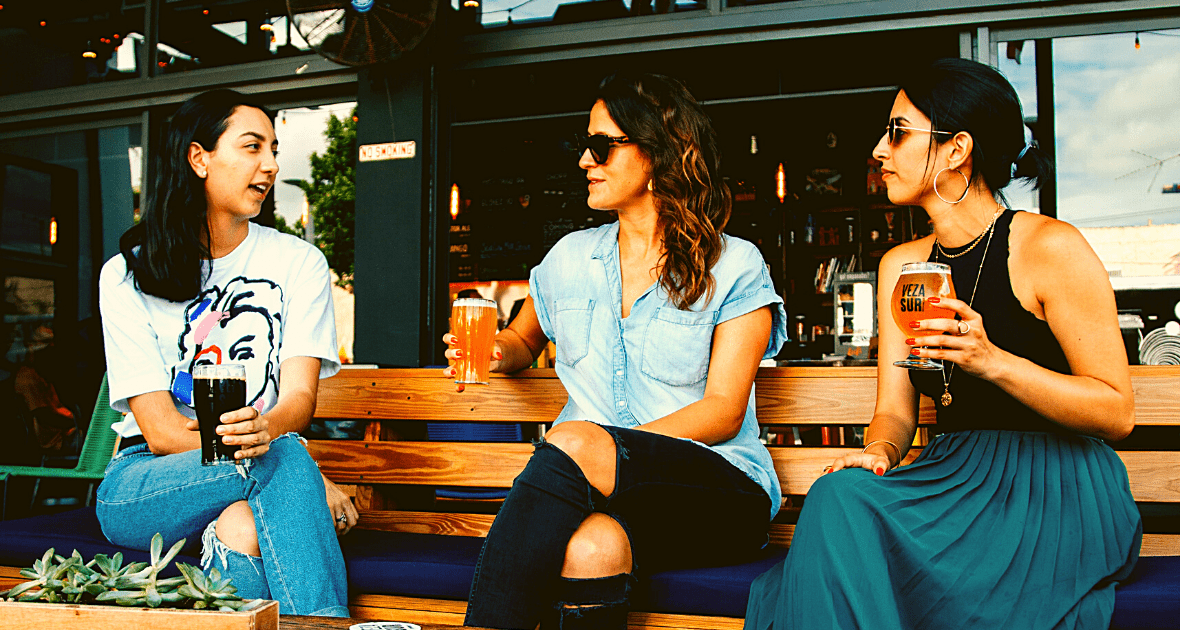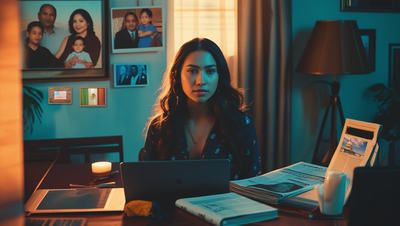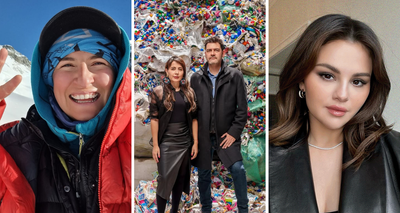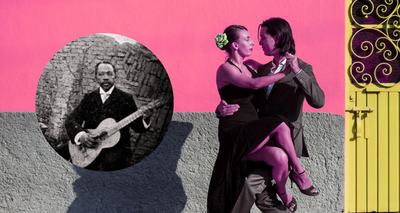American-born Latinxs often feel that they’re trapped between two worlds: they have been told by US Americans that they’re not Americano enough and they have been told by Latin Americans that they’re not Latinx enough. But, of course, they’re both! Language is one of the most common arguments to try to make a person feel invalidated against their Latinx identity. Because someone not speaking Spanish doesn’t make them less than.
What’s the shared experience among US-born Latinxs in this regard? We talked with Denise Soler Cox, a first-generation American-born Latina, founder of Project Eñye and creator of the Being Eñye documentary, where she interviewed hundreds of Latinxs to ask them about their personal stories, their relationship with Spanish, their generalized identity crisis and where we can see a lot of her own personal journey through latinidad.
ENOUGH WITH ENOUGHNESS!
The ‘enoughness paradigm’, as Denise Soler Cox calls it, is the idea that there are some requirements Latinxs have to fulfill to be ‘Latinx enough’ (a topic that has also come up in conversation with other interviewees of BoldLatina, such as the founders of Latinxs in Gaming). This paradigm, of course, can turn out into a victimizing situation for American-born first, second or third-generation Latinxs who, for whatever reason, don’t speak Spanish. And, as the Pew Research Center has reported, the share of Latinxs who don’t speak Spanish is growing in the US.
As Soler Cox presents it in Being Eñye, the documentary she co-directed with documentarian Henry Ansbacher, this paradigm produces a feeling of being “two people at the same time,” one that is ‘too Latinx’ for white Americans and, at the same time, ‘too American’ for Latin Americans, and that can never completely fit into any of those worlds. Where did she find she could fit in, eventually? Among those other 16 million people in her situation. So, she decided to travel around the country and find them, the ‘eñye’ generation, to collect their shared experiences.
The irony of it all, and what puts Latinxs in this ‘not enough’ paradigm is that, while so many have been shamed for not speaking Spanish, their parents have been shamed for not speaking English. And, actually, that’s the reason these Latinxs don’t speak Spanish in the first place: “They were literally deprived of learning it oftentimes because their parents were trying to protect them from racism,” Soler Cox explains.
¿HABLO ESPAÑOL?
In the ‘not enough’ limbo, not speaking Spanish (or not speaking it ‘good enough’) is central: “Language has got to be one of the hottest topics that people use to describe someone’s latinidad or lack thereof,” Soler Cox explains. Interestingly, she points out, almost every US-born Latinx she interviewed or chatted with while working on Project Eñye (and that adds up to more than 1,000 people) feels their Spanish is simply not good enough.
Some US-born Latinxs feel that, even if their Spanish is good, it’s not ‘correct’ because they have learned particular dialects or regional amalgams, such as Tex-Mex. The truth is that dialects and amalgams occur in all Spanish-speaking countries, from regional languages within autonomous communities in Spain, to accents and dialects within Latin American countries. Spanish is a complex mosaic and keeps on changing everyday!
As we can get from this 1996 Chicago Tribune article, learning or improving their Spanish has been an issue for Latinxs for a long time, at least 25 years. Soler Cox, for example, grew up listening to her parents communicate with each other in Spanish, then she studied it in high school, she spent some time in Spain, in Puerto Rico, she’s had tutors, classes, online lessons. And, even so, she doesn’t consider herself completely fluent: it’s a “confidence issue” that, according to her words, can be fixed with a couple of glasses of Pinot Grigio. We can see that confidence issue in her film: she had the opportunity to interview famous New York radio presenter Polito Vega, but she felt she wasn’t able to run the interview in Spanish, so a friend stepped in to do it. By the way, her friend, Guadalupe Olvera Hirt, carried out the interview without problems, even if she also felt her Spanish was not good enough.
At some point, Soler Cox had to take a break from trying to improve her Spanish: “I felt that I was trying to heal a wound of my own enoughness, and I also realized that I was kind of feeling blocked, it triggered me, I would cry during lessons.” Now, she’s again enrolled in an online Spanish course, where she feels comfortable and not judged. She wants to continue learning for her daughters.
WHY DIDN’T I PASS IT ON? LATINXS WITH CHILDREN
Many Latinxs not only have to deal with the guilt of their parents not teaching them Spanish and not learning on their own but, also, they have to deal with the guilt of not teaching Spanish to their own children. “There’s something about becoming a parent, that’s where it happens, the urgency gets very strong,” Denise Soler Cox explains. Her daughters have recently enrolled in an international school with a Spanish program, which led her to re-take Spanish lessons: “They’re not going to surpass me in fluency. I want to show them that it’s important to me.”
For Project Eñye, she had some deep conversations with famous actor Luis Guzmán, who arrived in the US when he was a few weeks old, and even if technically an immigrant, feels like an ‘eñye’. He’s a parent as well and, in the film, we can hear him narrate how his children recriminate him for not teaching them Spanish. Crying, he opens up and shows his guilt: “I wish that I’d done a better job when it came to my kids”.
https://www.instagram.com/p/CAgefcfjnbu/?utm_source=ig_embed&utm_campaign=loading
Evidently, it is a sensitive topic for many of the interviewees. Guadalupe Olivera Hirt says: “I definitely feel like I have failed to pass on my ability to speak Spanish to my kids. I think my kids were confused when I tried to speak to them in Spanish and my husband would speak to them in English. And so, I gave up. And it’s something that I look back now on with regret. Because if I don’t do it, then it dies with me. And I think that would be heartbreaking”.
A WAY OUT OF THE ‘NOT ENOUGH’ PARADIGM
So, what do we do with these self-perceived dual identities, with the ‘not enough’ paradigm? According to Soler Cox, it’s all a matter of ‘belonging’ and active solidarity: “My latinidad might be in question for somebody from Latin America, but someone in Latin America’s belonging is in question in another area, that I can provide the space for them to feel more comfortable.”
The answer she has found to all these questions and, overall, to the Latinx identity crisis is belonging, taking active responsibility in one’s identity and in other people’s, to open doors and, for once, to be done with enoughness.
“There’s a lot of people who will fault me for not knowing Spanish completely, but I can guarantee you that I can dance better salsa than you,” says Lance Ríos, one of the interviewees at Being Eñye. There are Latinxs who can dance, Latinxs who can’t; Latinxs who don’t speak Spanish, Latinxs who are also American, also European, or Afro-Latinxs. There are Latinxs who can cook traditional meals and others who can’t even pronounce ‘tortilla’. What’s sure is that identities are complex and in constant evolution, as well as cultures. The Latinidad is not an exception.






